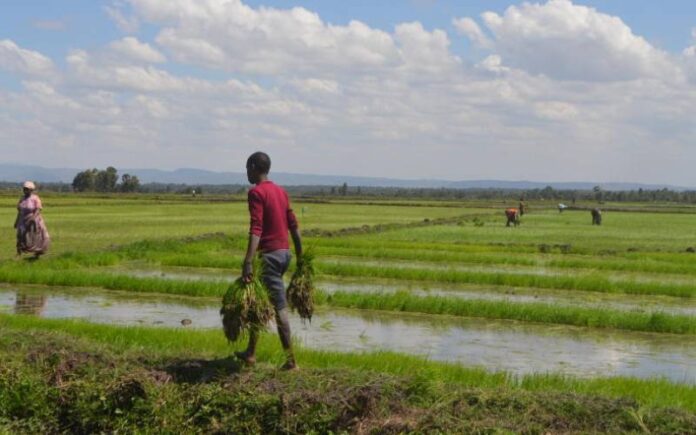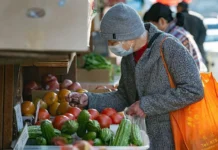The Kenyan government is seeking a multi-billion shilling partnership with development partners to revitalise and expand rice production in Western Kenya, with the Japan International Cooperation Agency (JICA) emerging as a key potential collaborator.
This was revealed during a high-level tour of the Ahero Irrigation Scheme in Kisumu County by JICA President Dr. Akihiko Tanaka, who was in the country to evaluate current and future cooperation opportunities.
National Irrigation Authority (NIA) CEO Charles Muasya outlined an ambitious plan to expand irrigation infrastructure at the Ahero and West Kano Irrigation Schemes and open an additional 56,000 acres under the Lower Kuja Scheme in Migori County.
The total cost of the planned works is estimated at Ksh 2.6 billion for Lower Kuja, Ksh 2.1 billion for West Kano, and Ksh 1.9 billion for the Kisumu Cluster.
At Ahero, which currently produces 6,930 metric tonnes of rice annually, Muasya said Ksh 550 million has been earmarked to repair aging infrastructure, expand irrigated land by 800 acres, and modernise the pumping station through solarisation to reduce energy costs.
Combined with the recent adoption of four high-yield rice varieties developed by KALRO, the expansion is expected to increase Ahero’s output to 10,820 metric tonnes annually in the near term.
Principal Secretary for Irrigation Ephantus Kimotho said the initiative is part of a national strategy to close the country’s rice deficit, with current consumption at 1.1 million metric tonnes annually against domestic production of just 293,000 metric tonnes.
He noted that the Ahero Scheme, which relies on River Nyando, has vast untapped potential, especially with the proposed Koru-Soin multipurpose dam expected to add another 30,000 acres, increasing production to 52,000 metric tonnes.
To ensure success, Kimotho said the government would replicate agronomic best practices from Mwea, Kenya’s most productive rice-growing region, including mechanisation, farmer training, and consistent water supply.
Commending Kenya’s efforts, Dr. Tanaka reaffirmed JICA’s commitment to supporting Kenya’s food security goals through technical assistance, funding, and capacity building. However, he stressed the importance of transparency and efficient resource use.
“Funds are limited, but with proper planning and the dedicated team I see here today, we should be able to deliver tangible results,” said Dr. Tanaka.
Written By Rodney Mbua



















